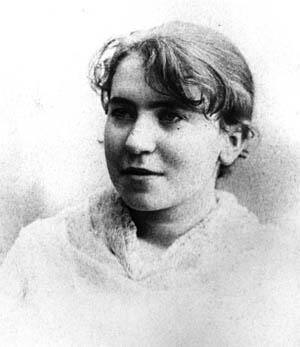Trying To Be The Iconoclast
If you had spoken to me a couple years ago, you would think I was a die-hard patriot. I carried around a pocket Constitution and cried a lot about justice and freedom and how beautiful America was. But as it happens, I’ve fallen out of love with the U.S. and not just the U.S., but the doctrine it models itself on.
When I hear the word rebellion, the first thing that comes to my mind is anarchy. Now, I know anarchy is a loaded term—associated with masked faces, Molotov cocktails, and chaos—but this past summer, I had a reeducation about anarchy. It was in a political philosophy course I was taking at Cornell. We had just finished learning about the classic liberal thinkers, Locke and Mill. Their philosophies were the ones I grew up on with an emphasis on freedom, liberty, and the social contract. I had accepted these theorists as having special insight into the nature of humans.
However, when we began to learn Marx, I became more unsettled with Lockean liberal ideals. How can I accept an idea of the “state of nature” when it is made up purely in theory? How can I accept Locke’s concept of individual rights when he endorsed slavery? How can I read Rousseau’s concept of justice for all seriously when he proclaims the subservience of women? I know that these men were writing at a different time but these gaping holes remain and when you look at the world today, it is not hard to see that oppression still exists even here, in the supposed bastion of hope and freedom. Marx was integral to my reevaluation of the system we live in. His writing was compelling and interesting, and though I didn’t immediately call myself a communist, I was left wondering, “Why didn’t I ever give these other ideas consideration?” Marx was still ultimately championing freedom and justice but he was able to look past systems of capitalism and liberalism and point out their issues at the root.
I left Cornell that summer much more critical of the society I grew up in, but in a good way, in a way that felt like I was unlearning the narrow conception of “free society” I had grown up with. I began to become more interested in radical writers, especially Emma Goldman. Emma was a prolific anarchist thinker at the turn of the century who faced ridicule, violence, and prison for her beliefs. However, she maintained her idea of a just society. The more I read, the more the image of the “chaos” of anarchy and socialism began to break down and instead, I saw thinkers who valued freedom, liberty, and justice, but in a different way. Emma Goldman put it beautifully when she said, “I want freedom, the right to self expression, everybody’s right to beautiful things. Anarchism [means] that to me, and I would live it in spite of the whole world.” Anarchy is not about absolutism, it’s about being free from the inherent problems of bureaucracy and it can be beautiful.
I’m still in the process of learning—and unlearning—but it’s a difficult topic to navigate. It is telling that the when you Google “anarchy,” two definitions come up: one that calls it a “state of disorder” and the other, “a political ideal.” But in my mind, to paraphrase Ellen Willis, anarchy is not a violent rebellion but an overhaul of societal consciousness. I find it more compelling now to be a critic, of everything, because to live critically is to live truthfully. I condemn injustices wherever I see them, and I now have the perspective to look not just at the perpetrator but at how the system itself perpetrates injustice and hatred. Looking at the roots of evil in society can be dismal, but I don’t feel pessimistic. Where injustice exists, I see the potential for change and I want to be that change instead of making excuses for the society that lets it happen.
This piece was written as part of JWA’s Rising Voices Fellowship.






